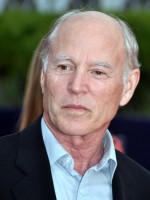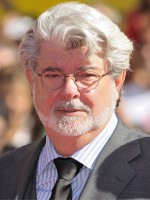Steven Spielberg is a Actor, Director, Scriptwriter, Producer, Co-Director, Editor, Title Designer and Second Unit American born on 18 december 1946 at Cincinnati (USA)

Steven Allan Spielberg (born December 18, 1946) is an American director, producer and screenwriter. Spielberg is considered as one of the founding pioneers of the New Hollywood era, as well as being viewed as one of the most popular and influential directors and producers in film history. In a career spanning more than four decades, Spielberg's films have covered many themes and genres. Spielberg's early science-fiction and adventure films were seen as archetypes of modern Hollywood blockbuster filmmaking. In later years, his films began addressing humanistic issues such as the Holocaust (in Schindler's List), the transatlantic slave trade (in Amistad), war (in Empire of the Sun, Saving Private Ryan, and War Horse), and terrorism (in Munich). He is one of the co-founders of DreamWorks Studios.
His other films include Close Encounters of the Third Kind, the Indiana Jones film series, and A.I. Artificial Intelligence. Spielberg won the Academy Award for Best Director for Schindler's List (1993) and Saving Private Ryan (1998). Three of Spielberg's films—Jaws (1975), E.T. the Extra-Terrestrial (1982), and Jurassic Park (1993)—achieved box office records, originated and came to epitomize the blockbuster movie.
The unadjusted gross of all Spielberg-directed films exceeds $9 billion worldwide, making him the highest-grossing director in history. His personal net worth is estimated to be more than $3 billion.
Spielberg first met actress Amy Irving in 1976 at the suggestion of director Brian De Palma, who knew he was looking for an actress to play in Close Encounters. After meeting her, Spielberg told his co-producer Julia Phillips, "I met a real heartbreaker last night." Although she was too young for the role, she and Spielberg began dating and she eventually moved in to what she described as his "bachelor funky" house. They lived together for four years, but the stresses of their professional careers took a toll on their relationship. Irving wanted to be certain that whatever success she attained as an actress would be her own: "I don't want to be known as Steven's girlfriend," she said, and chose not to be in any of his films during those years.
As a result, they broke up in 1979, but remained close friends. Then in 1984 they renewed their romance, and in November 1985, they married, already having had a son, Max Samuel. After three and a half years of marriage, however, many of the same competing stresses of their careers caused them to divorce in 1989. They agreed to maintain homes near each other as to facilitate the shared custody and parenting of their son. Their divorce was recorded as the third most costly celebrity divorce in history.
Spielberg subsequently developed a relationship with actress Kate Capshaw, whom he met when he cast her in Indiana Jones and the Temple of Doom. They married on October 12, 1991. Capshaw is a convert to Judaism. They currently move among their four homes in Pacific Palisades, California; New York City; Quelle Farm, Georgica Pond in East Hampton, New York, on Long Island; and Naples, Florida.
There are seven children in the Spielberg-Capshaw family:
Jessica Capshaw (born August 9, 1976) – daughter from Kate Capshaw's previous marriage to Robert Capshaw
Max Samuel Spielberg (born June 13, 1985) – son from Spielberg's previous marriage to actress Amy Irving
Theo Spielberg (born August 21, 1988) – son adopted by Capshaw before her marriage to Spielberg, who later also adopted him
Sasha Rebecca Spielberg (born May 14, 1990, Los Angeles)
Sawyer Avery Spielberg (born March 10, 1992, Los Angeles)
Mikaela George (born February 28, 1996) – adopted with Kate Capshaw
Destry Allyn Spielberg (born December 1, 1996)
Religion
Spielberg grew up in a Jewish household, including having a bar mitzvah ceremony in Phoenix when he turned 13. He grew away from Judaism after his family moved to various cities during his high school years, where they became the only Jews in the neighborhood. Before those years, his family was involved in the synagogue and had many Jewish friends and nearby relatives.
He remembers his grandparents telling him about their life in Russia, where they were subjected to religious persecution, causing them to eventually flee to the United States. He was made aware of the Holocaust by his parents, who he says “talked about it all the time, and so it was always on my mind.” His father had lost between sixteen and twenty relatives during the Holocaust.
Spielberg "rediscovered the honor of being a Jew," he says, before he made Schindler's List, when he married Kate Capshaw. Until then, having become a filmmaker, he only felt his connection to Judaism when he visited his parents. He says he made the film to partly to create “something that would confirm my Judaism to my family and myself.”
Kate is Protestant and she insisted on converting to Judaism. She spent a year studying, did the “mikveh,” the whole thing. She chose to do a full conversion before we were married in 1991, and she married me after becoming a Jew. I think that, more than anything else, brought me back to Judaism.
He credits her with fueling his family's current level of observance and for keeping the “momentum flowing" in their lives, as they now observe Jewish holidays, light candles on Friday nights, and give their children Bar and Bat Mitzvahs. "This shiksa goddess has made me a better Jew than my own parents."
Producing Schindler's List in 1993 also renewed his faith, Spielberg says, but "it really was the fact that my wife took a profound interest in Judaism." He waited ten years after being given the story in 1982 to make the film, as he did not yet feel "mature" enough. He first wanted to have a family, "to figure out what my place was in the world. . . . When my first son, [Max] was born, it greatly affected me. . . . A spirit began to ignite in me, and I became a Jewish dad. . ."
He said that making the film became a “natural experience” for him, adding, "I had to tell the story. I've lived on its outer edges." The film, writes biographer Joseph McBride, thereby became the "culmination" of Spielberg's long personal struggle with his Jewish identity. Some claim the film has made Spielberg "the one true heir to the great Jewish moguls who created Hollywood," most of whom had actively avoided depicting Jews or the Holocaust in their films.
Wealth
Forbes magazine places Spielberg's personal net worth at $3 billion.
Recognition
In 2002, Spielberg was one of eight flagbearers who carried the Olympic Flag into Rice-Eccles Stadium at the Opening Ceremonies of the 2002 Winter Olympic Games in Salt Lake City. In 2006, Premiere listed him as the most powerful and influential figure in the motion picture industry. Time listed him as one of the 100 Most Important People of the Century. At the end of the 20th century, Life named him the most influential person of his generation. In 2009, Boston University presented him an honorary Doctor of Humane Letters degree.
According to Forbes ' Most Influential Celebrities 2014 list, Spielberg was listed as the most influential celebrity in America. The annual list is conducted by E-Poll Market Research and it gave more than 6,600 celebrities on 46 different personality attributes a score representing "how that person is perceived as influencing the public, their peers, or both." Spielberg received a score of 47, meaning 47% of the US believes he is influential. Gerry Philpott, president of E-Poll Market Research, supported Spielberg's score by stating, "If anyone doubts that Steven Spielberg has greatly influenced the public, think about how many will think for a second before going into the water this summer."
Politics
Spielberg usually supports U.S. Democratic Party candidates. He has donated over $800,000 to the Democratic party and its nominees. He has been a close friend of former President Bill Clinton and worked with the President for the USA Millennium celebrations. He directed an 18-minute film for the project, scored by John Williams and entitled The American Journey. It was shown at America's Millennium Gala on December 31, 1999, in the National Mall at the Reflecting Pool at the base of the Lincoln Memorial in Washington, D.C.
Spielberg resigned as a member of the national advisory board of the Boy Scouts of America in 2001 because of his disapproval of the organization's anti-homosexuality stance.
In 2007 the Arab League voted to boycott Spielberg's movies after he donated $1 million for relief efforts in Israel during the 2006 Lebanon War.
On February 20, 2007, Spielberg, Jeffrey Katzenberg, and David Geffen invited Democrats to a fundraiser for Barack Obama.
In February 2008, Spielberg pulled out of his role as advisor to the 2008 Summer Olympics in response to the Chinese government's inaction over the War in Darfur. Spielberg said in a statement that "I find that my conscience will not allow me to continue business as usual." It also said that "Sudan's government bears the bulk of the responsibility for these on-going crimes, but the international community, and particularly China, should be doing more.." The International Olympic Committee respected Spielberg's decision, but IOC president Jacques Rogge admitted in an interview that "[Spielberg] certainly would have brought a lot to the opening ceremony in terms of creativity." Spielberg's statement drew criticism from Chinese officials and state-run media calling his criticism "unfair".
In September 2008, Spielberg and his wife offered their support to same-sex marriage, by issuing a statement following their donation of $100,000 to the "No on Proposition 8" campaign fund, a figure equal to the amount of money Brad Pitt donated to the same campaign less than a week prior.
Hobbies
In June 1982 Steven Spielberg spent $60,500 to buy a Rosebud sled from the 1941 film Citizen Kane – one of three balsa sleds used in the closing scenes and the only one that was not burned. Spielberg had paid homage to the Orson Welles classic in the final shot of the government warehouse in his 1981 film, Raiders of the Lost Ark. "When you look at Rosebud, you don't think of fast dollars, fast sequels and remakes," Spielberg said. "This to me says that movies of my generation had better be good." In 1994 Spielberg also purchased an original script for Welles's 1938 radio broadcast The War of the Worlds – Welles's own directorial copy and one of only two radioscripts known to survive. Spielberg adapted The War of the Worlds for a feature film in 2005.
Spielberg is a major collector of the American illustrator and painter Norman Rockwell. A collection of 57 Rockwell paintings and drawings owned by Spielberg and fellow Rockwell collector and film director George Lucas were displayed at the Smithsonian American Art Museum from July 2, 2010 to January 2, 2011 in an exhibition titled Telling Stories.
Spielberg is an avid film buff, and, when not shooting a picture, he will indulge in "movie orgies" (watching many over a single weekend). He sees almost every major summer blockbuster in theaters if not preoccupied and enjoys most of them; "If I get pleasure from anything, I can't think of it as dumb or myself as shallow [...] I'll probably go late to that movie and go, 'What the dickens was everybody complaining about, that wasn't so bad!'".
Since playing Pong while filming Jaws in 1974, Spielberg has been an avid video gamer. Spielberg played many of LucasArts adventure games, including the first Monkey Island games. He owns a Wii, a PlayStation 3, a PSP, and Xbox 360, and enjoys playing first-person shooters such as the Medal of Honor series and Call of Duty 4: Modern Warfare. He has also criticized the use of cut scenes in games, calling them intrusive, and feels making story flow naturally into the gameplay is a challenge for future game developers.
Stalking
In 2001, Spielberg was stalked by conspiracy theorist and former social worker Diana Napolis. She accused him, along with actress Jennifer Love Hewitt, of controlling her thoughts through "cybertronic" technology and being part of a satanic conspiracy against her. Napolis was committed to a mental institution before pleading guilty to stalking, and released on probation with a condition that she have no contact with either Spielberg or Hewitt.
Spielberg was a target of the 2002 white supremacist terror plot.
Jonathan Norman was arrested after making two attempts to enter Spielberg's Pacific Palisades home in June and July 1997. Norman was jailed for 25 years in California. Spielberg told the court: "Had Jonathan Norman actually confronted me, I genuinely, in my heart of hearts, believe that I would have been raped or maimed or killed.
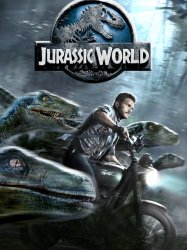 (2015)
(2015)
(Executive Producer) (2018)
(2018)
(Executive Producer) (2011)
(2011)
(Executive Producer) (2014)
(2014)
(Executive Producer) (1993)
(1993)
(Director)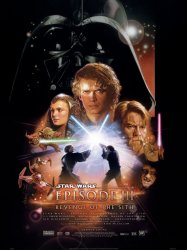 (2005)
(2005)
(Second Unit Director)
Source : Wikidata
Steven Spielberg

- Infos
- Photos
- Best films
- Family
- Characters
- Awards
Birth name Steven Allan Spielberg
Nationality USA
Birth 18 december 1946 (77 years) at Cincinnati (USA)
Creator of DreamWorks SKG
Creator of Amblin Entertainment
Creator of Amblimation
Creator of DreamWorks Animation
Creator of Amblin Partners
Awards Chevalier de la Légion d'Honneur, Knight Commander of the Most Excellent Order of the British Empire, Daytime Emmy Award, Academy Award for Best Director
Nationality USA
Birth 18 december 1946 (77 years) at Cincinnati (USA)
Creator of DreamWorks SKG
Creator of Amblin Entertainment
Creator of Amblimation
Creator of DreamWorks Animation
Creator of Amblin Partners
Awards Chevalier de la Légion d'Honneur, Knight Commander of the Most Excellent Order of the British Empire, Daytime Emmy Award, Academy Award for Best Director
His other films include Close Encounters of the Third Kind, the Indiana Jones film series, and A.I. Artificial Intelligence. Spielberg won the Academy Award for Best Director for Schindler's List (1993) and Saving Private Ryan (1998). Three of Spielberg's films—Jaws (1975), E.T. the Extra-Terrestrial (1982), and Jurassic Park (1993)—achieved box office records, originated and came to epitomize the blockbuster movie.
The unadjusted gross of all Spielberg-directed films exceeds $9 billion worldwide, making him the highest-grossing director in history. His personal net worth is estimated to be more than $3 billion.
Biography
Marriages and childrenSpielberg first met actress Amy Irving in 1976 at the suggestion of director Brian De Palma, who knew he was looking for an actress to play in Close Encounters. After meeting her, Spielberg told his co-producer Julia Phillips, "I met a real heartbreaker last night." Although she was too young for the role, she and Spielberg began dating and she eventually moved in to what she described as his "bachelor funky" house. They lived together for four years, but the stresses of their professional careers took a toll on their relationship. Irving wanted to be certain that whatever success she attained as an actress would be her own: "I don't want to be known as Steven's girlfriend," she said, and chose not to be in any of his films during those years.
As a result, they broke up in 1979, but remained close friends. Then in 1984 they renewed their romance, and in November 1985, they married, already having had a son, Max Samuel. After three and a half years of marriage, however, many of the same competing stresses of their careers caused them to divorce in 1989. They agreed to maintain homes near each other as to facilitate the shared custody and parenting of their son. Their divorce was recorded as the third most costly celebrity divorce in history.
Spielberg subsequently developed a relationship with actress Kate Capshaw, whom he met when he cast her in Indiana Jones and the Temple of Doom. They married on October 12, 1991. Capshaw is a convert to Judaism. They currently move among their four homes in Pacific Palisades, California; New York City; Quelle Farm, Georgica Pond in East Hampton, New York, on Long Island; and Naples, Florida.
There are seven children in the Spielberg-Capshaw family:
Jessica Capshaw (born August 9, 1976) – daughter from Kate Capshaw's previous marriage to Robert Capshaw
Max Samuel Spielberg (born June 13, 1985) – son from Spielberg's previous marriage to actress Amy Irving
Theo Spielberg (born August 21, 1988) – son adopted by Capshaw before her marriage to Spielberg, who later also adopted him
Sasha Rebecca Spielberg (born May 14, 1990, Los Angeles)
Sawyer Avery Spielberg (born March 10, 1992, Los Angeles)
Mikaela George (born February 28, 1996) – adopted with Kate Capshaw
Destry Allyn Spielberg (born December 1, 1996)
Religion
Spielberg grew up in a Jewish household, including having a bar mitzvah ceremony in Phoenix when he turned 13. He grew away from Judaism after his family moved to various cities during his high school years, where they became the only Jews in the neighborhood. Before those years, his family was involved in the synagogue and had many Jewish friends and nearby relatives.
He remembers his grandparents telling him about their life in Russia, where they were subjected to religious persecution, causing them to eventually flee to the United States. He was made aware of the Holocaust by his parents, who he says “talked about it all the time, and so it was always on my mind.” His father had lost between sixteen and twenty relatives during the Holocaust.
Spielberg "rediscovered the honor of being a Jew," he says, before he made Schindler's List, when he married Kate Capshaw. Until then, having become a filmmaker, he only felt his connection to Judaism when he visited his parents. He says he made the film to partly to create “something that would confirm my Judaism to my family and myself.”
Kate is Protestant and she insisted on converting to Judaism. She spent a year studying, did the “mikveh,” the whole thing. She chose to do a full conversion before we were married in 1991, and she married me after becoming a Jew. I think that, more than anything else, brought me back to Judaism.
He credits her with fueling his family's current level of observance and for keeping the “momentum flowing" in their lives, as they now observe Jewish holidays, light candles on Friday nights, and give their children Bar and Bat Mitzvahs. "This shiksa goddess has made me a better Jew than my own parents."
Producing Schindler's List in 1993 also renewed his faith, Spielberg says, but "it really was the fact that my wife took a profound interest in Judaism." He waited ten years after being given the story in 1982 to make the film, as he did not yet feel "mature" enough. He first wanted to have a family, "to figure out what my place was in the world. . . . When my first son, [Max] was born, it greatly affected me. . . . A spirit began to ignite in me, and I became a Jewish dad. . ."
He said that making the film became a “natural experience” for him, adding, "I had to tell the story. I've lived on its outer edges." The film, writes biographer Joseph McBride, thereby became the "culmination" of Spielberg's long personal struggle with his Jewish identity. Some claim the film has made Spielberg "the one true heir to the great Jewish moguls who created Hollywood," most of whom had actively avoided depicting Jews or the Holocaust in their films.
Wealth
Forbes magazine places Spielberg's personal net worth at $3 billion.
Recognition
In 2002, Spielberg was one of eight flagbearers who carried the Olympic Flag into Rice-Eccles Stadium at the Opening Ceremonies of the 2002 Winter Olympic Games in Salt Lake City. In 2006, Premiere listed him as the most powerful and influential figure in the motion picture industry. Time listed him as one of the 100 Most Important People of the Century. At the end of the 20th century, Life named him the most influential person of his generation. In 2009, Boston University presented him an honorary Doctor of Humane Letters degree.
According to Forbes ' Most Influential Celebrities 2014 list, Spielberg was listed as the most influential celebrity in America. The annual list is conducted by E-Poll Market Research and it gave more than 6,600 celebrities on 46 different personality attributes a score representing "how that person is perceived as influencing the public, their peers, or both." Spielberg received a score of 47, meaning 47% of the US believes he is influential. Gerry Philpott, president of E-Poll Market Research, supported Spielberg's score by stating, "If anyone doubts that Steven Spielberg has greatly influenced the public, think about how many will think for a second before going into the water this summer."
Politics
Spielberg usually supports U.S. Democratic Party candidates. He has donated over $800,000 to the Democratic party and its nominees. He has been a close friend of former President Bill Clinton and worked with the President for the USA Millennium celebrations. He directed an 18-minute film for the project, scored by John Williams and entitled The American Journey. It was shown at America's Millennium Gala on December 31, 1999, in the National Mall at the Reflecting Pool at the base of the Lincoln Memorial in Washington, D.C.
Spielberg resigned as a member of the national advisory board of the Boy Scouts of America in 2001 because of his disapproval of the organization's anti-homosexuality stance.
In 2007 the Arab League voted to boycott Spielberg's movies after he donated $1 million for relief efforts in Israel during the 2006 Lebanon War.
On February 20, 2007, Spielberg, Jeffrey Katzenberg, and David Geffen invited Democrats to a fundraiser for Barack Obama.
In February 2008, Spielberg pulled out of his role as advisor to the 2008 Summer Olympics in response to the Chinese government's inaction over the War in Darfur. Spielberg said in a statement that "I find that my conscience will not allow me to continue business as usual." It also said that "Sudan's government bears the bulk of the responsibility for these on-going crimes, but the international community, and particularly China, should be doing more.." The International Olympic Committee respected Spielberg's decision, but IOC president Jacques Rogge admitted in an interview that "[Spielberg] certainly would have brought a lot to the opening ceremony in terms of creativity." Spielberg's statement drew criticism from Chinese officials and state-run media calling his criticism "unfair".
In September 2008, Spielberg and his wife offered their support to same-sex marriage, by issuing a statement following their donation of $100,000 to the "No on Proposition 8" campaign fund, a figure equal to the amount of money Brad Pitt donated to the same campaign less than a week prior.
Hobbies
In June 1982 Steven Spielberg spent $60,500 to buy a Rosebud sled from the 1941 film Citizen Kane – one of three balsa sleds used in the closing scenes and the only one that was not burned. Spielberg had paid homage to the Orson Welles classic in the final shot of the government warehouse in his 1981 film, Raiders of the Lost Ark. "When you look at Rosebud, you don't think of fast dollars, fast sequels and remakes," Spielberg said. "This to me says that movies of my generation had better be good." In 1994 Spielberg also purchased an original script for Welles's 1938 radio broadcast The War of the Worlds – Welles's own directorial copy and one of only two radioscripts known to survive. Spielberg adapted The War of the Worlds for a feature film in 2005.
Spielberg is a major collector of the American illustrator and painter Norman Rockwell. A collection of 57 Rockwell paintings and drawings owned by Spielberg and fellow Rockwell collector and film director George Lucas were displayed at the Smithsonian American Art Museum from July 2, 2010 to January 2, 2011 in an exhibition titled Telling Stories.
Spielberg is an avid film buff, and, when not shooting a picture, he will indulge in "movie orgies" (watching many over a single weekend). He sees almost every major summer blockbuster in theaters if not preoccupied and enjoys most of them; "If I get pleasure from anything, I can't think of it as dumb or myself as shallow [...] I'll probably go late to that movie and go, 'What the dickens was everybody complaining about, that wasn't so bad!'".
Since playing Pong while filming Jaws in 1974, Spielberg has been an avid video gamer. Spielberg played many of LucasArts adventure games, including the first Monkey Island games. He owns a Wii, a PlayStation 3, a PSP, and Xbox 360, and enjoys playing first-person shooters such as the Medal of Honor series and Call of Duty 4: Modern Warfare. He has also criticized the use of cut scenes in games, calling them intrusive, and feels making story flow naturally into the gameplay is a challenge for future game developers.
Stalking
In 2001, Spielberg was stalked by conspiracy theorist and former social worker Diana Napolis. She accused him, along with actress Jennifer Love Hewitt, of controlling her thoughts through "cybertronic" technology and being part of a satanic conspiracy against her. Napolis was committed to a mental institution before pleading guilty to stalking, and released on probation with a condition that she have no contact with either Spielberg or Hewitt.
Spielberg was a target of the 2002 white supremacist terror plot.
Jonathan Norman was arrested after making two attempts to enter Spielberg's Pacific Palisades home in June and July 1997. Norman was jailed for 25 years in California. Spielberg told the court: "Had Jonathan Norman actually confronted me, I genuinely, in my heart of hearts, believe that I would have been raped or maimed or killed.
Best films
 (2015)
(2015)(Executive Producer)
 (2018)
(2018)(Executive Producer)
 (2011)
(2011)(Executive Producer)
 (2014)
(2014)(Executive Producer)
 (1993)
(1993)(Director)
 (2005)
(2005)(Second Unit Director)
Usually with
Filmography of Steven Spielberg (158 films)
Actor
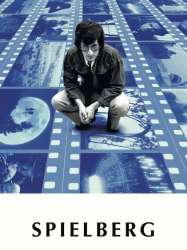
Spielberg (2017)
, 2h20Origin USA
Genres Documentary
Themes Films about films, Documentary films about the film industry, Documentaire sur une personnalité
Actors Steven Spielberg, Martin Scorsese, Richard Dreyfuss, Francis Ford Coppola, Tom Hanks, J. J. Abrams
Roles Self
Rating76%





Ce documentaire, qui comprend des entretiens avec Steven Spielberg, nous raconte la carrière longue de 50 ans du réalisateur et nous donne un aperçu de la part de ses proches notamment J.J. Abrams, Christian Bale, Drew Barrymore, Cate Blanchett, Francis Ford Coppola, Daniel Craig, Daniel Day-Lewis, Brian de Palma, Laura Dern, Leonardo DiCaprio, Richard Dreyfuss, Ralph Fiennes, Harrison Ford, David Geffen, Tom Hanks, Dustin Hoffman, Holly Hunter, Jeffrey Katzenberg, Ben Kingsley, Kathleen Kennedy, George Lucas, Liam Neeson, Martin Scorsese, Oprah Winfrey et Robert Zemeckis
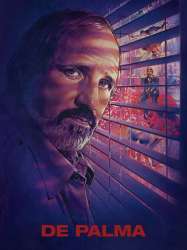
De Palma (2016)
, 1h47Directed by Noah Baumbach, Jake Paltrow
Origin USA
Genres Documentary
Themes Films about films, Documentary films about the film industry
Actors Brian De Palma, Mark Hamill, Amy Irving, Kurt Russell, Sissy Spacek, Steven Spielberg
Roles Self (archive footage) (uncredited)
Rating73%





Une plongée dans l’univers de Brian De Palma.
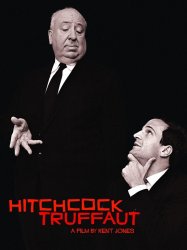
Hitchcock/Truffaut (2015)
, 1h19Origin France
Genres Documentary
Themes Documentary films about business, Documentary films about the film industry
Actors Bob Balaban, Mathieu Amalric, Steven Spielberg, Martin Scorsese, Wes Anderson, David Fincher
Roles Himself
Rating72%





Le documentaire retrace la genèse du célèbre livre de Truffaut et des entretiens qu'il a enregistré avec Alfred Hitchcock dans les studios Universal en 1962.
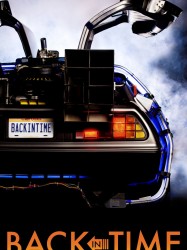
Back in Time (2015)
, 1h35Origin USA
Genres Documentary, Historical
Actors Michael J. Fox, Christopher Lloyd, Robert Zemeckis, Steven Spielberg, Bob Gale, Lea Thompson
Roles Self
Rating63%





Un documentaire sur Retour vers le futur, 30 ans après...
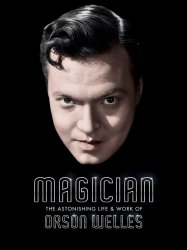 , 1h35
, 1h35Origin USA
Genres Documentary
Themes Films about writers, Documentary films about business, Documentary films about the film industry
Actors Orson Welles, Peter Bogdanovich, Julie Taymor, Steven Spielberg, Martin Scorsese, Elvis Mitchell
Roles Self - Filmmaker (archive footage)
Rating68%





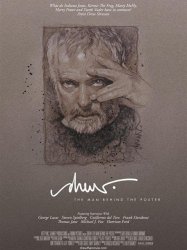 , 1h37
, 1h37Origin USA
Genres Documentary
Themes Documentary films about business, Documentary films about the visual arts, Documentary films about the film industry, Documentary films about cities
Actors Drew Struzan, Harrison Ford, Guillermo del Toro, George Lucas, Michael J. Fox, Frank Darabont
Roles Self
Rating73%





The documentary features interviews with a number of people, including Struzan himself, his wife, Dylan Struzan, his son, Christian Struzan, directors Steven Spielberg, Guillermo del Toro and George Lucas, and actors Harrison Ford and Michael J. Fox. The film follows Struzan's career painting movie posters for films such as Star Wars, The Thing, Back to the Future, the Indiana Jones franchise, and the Harry Potter franchise.

Paul (2011)
, 1h44Directed by Greg Mottola
Origin USA
Genres Science fiction, Comedy, Adventure, Comic science fiction
Themes Transport films, Films about automobiles, Comedy science fiction films, Films about extraterrestrial life, Road movies, Buddy films, Films about extraterrestrial life
Actors Simon Pegg, Seth Rogen, Nick Frost, Kristen Wiig, Jason Bateman, Bill Hader
Roles Self
Rating68%





Graeme Willy (Simon Pegg) and Clive Gollings (Nick Frost) are British comic book enthusiasts and best friends who travel to the United States to attend the annual San Diego Comic-Con International, and to take a road trip through the American Southwest to visit sites significant to UFO lore. While driving on a remote desert highway at night, Graeme and Clive observe a car driving erratically and then crash. They stop to investigate and offer assistance to the driver, who turns out to be an alien named Paul (voiced by Seth Rogen). Clive faints, but Graeme agrees to assist Paul and gives him a ride.
 , 2h23
, 2h23Directed by Michael Bay
Origin USA
Genres Science fiction, War, Action, Adventure
Themes Films set in Africa, Jeu, Films set in the future, Films about extraterrestrial life, Films about toys, Films about extraterrestrial life, Alien invasions in films, Robot films, Disaster films
Actors Shia LaBeouf, Megan Fox, Josh Duhamel, Tyrese Gibson, John Turturro, Ramón Rodríguez
Roles lui-même
Rating60%





In 17,000 B.C., the Seven Primes traveled the galaxy to create Energon with star-absorbing machines called Sun Harvesters. The Primes followed a rule in which to never destroy planets with life, but one of them, later called The Fallen, deceives the others by building an army and sets up a Harvester on Earth. After defeating ancient humans, the Primes defeat and imprison the Fallen before he can harvest the Earth's sun with the Matrix of Leadership. The rest of the Primes sacrifice themselves to hide the Matrix.
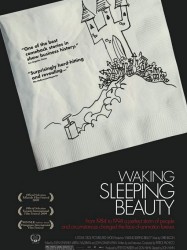
Waking Sleeping Beauty (2009)
, 1h26Directed by Don Hahn
Origin USA
Genres Documentary
Themes Films about films, Documentary films about business, Documentary films about the visual arts, Documentary films about the film industry, Documentary films about cities, Musical films, Children's films
Actors Roy E. Disney, Michael Eisner, Jeffrey Katzenberg, Frank Wells, Howard Ashman, Steven Spielberg
Roles Self (archive footage)
Rating74%





The film covers the fall and rebirth of Disney's animation division, the effects the new corporate team of Michael Eisner, Frank Wells, and Jeffrey Katzenberg had on the division, the competition with Don Bluth's animation studio, the pivotal roles of Who Framed Roger Rabbit and the CAPS system, the introduction of the home video format, and the new-found success the studio had from 1989-1999.
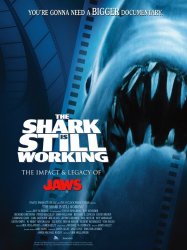
Origin USA
Genres Documentary
Themes Films about animals, Films about films, Films about sharks, Documentary films about business, Documentary films about the film industry, Documentary films about films
Actors Richard Dreyfuss, Percy Rodriguez, Carl Gottlieb, Gregory Nicotero, Robert Rodríguez, Eli Roth
Roles Self
Rating75%





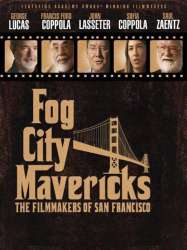
Fog City Mavericks (2007)
Origin USA
Genres Documentary
Themes Documentary films about business, Documentary films about the film industry, Documentary films about cities
Actors Francis Ford Coppola, Miloš Forman, John Lasseter, George Lucas, Steven Spielberg, Frank Darabont
Roles Self
Rating74%





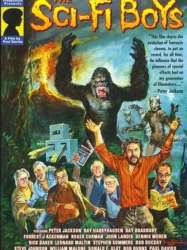
The Sci-Fi Boys (2006)
Origin USA
Genres Documentary
Actors Peter Jackson, Ray Harryhausen, Leonard Maltin, Forrest J Ackerman, John Landis, Dennis Muren
Roles Self
Rating68%





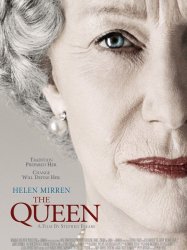
The Queen (2006)
, 1h39Directed by Stephen Frears
Origin United-kingdom
Genres Drama, Biography, Documentary, Historical
Themes Politique, Political films, Films about royalty
Actors Helen Mirren, Michael Sheen, James Cromwell, Helen McCrory, Alex Jennings, Roger Allam
Roles Self (archive footage) (uncredited)
Rating72%





In the 1997 general election, Tony Blair (Michael Sheen) becomes Britain's Labour prime minister. However, the Queen (Helen Mirren) is wary of Blair and his pledge to modernise Britain, despite his promises to respect the Royal Family. Three months later, Diana, Princess of Wales dies in a car crash at the Alma Bridge tunnel in Paris. Blair's director of communications, Alastair Campbell (Mark Bazeley), prepares a speech in which Diana is described as the people's princess. The phrase catches on and millions of people across London display an outpouring of grief at Buckingham and Kensington Palaces. Meanwhile, the Royal Family is still at their summer estate in Balmoral Castle. Diana's death sparks division amongst members of the family, with some of the view that since Diana was divorced from Prince Charles (Alex Jennings) a year prior to her death, she was no longer a part of the royal family. They argue that Diana's funeral arrangements are thus best left as a private affair of her noble family, the Spencers. Charles, however, argues that the mother of a future king cannot be dismissed so lightly, and persuades the Queen to authorise the use of an aircraft of the Royal Air Force to bring Diana's body back to Britain.
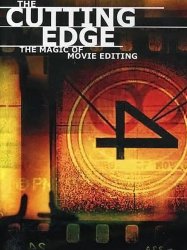 , 1h38
, 1h38Genres Documentary, Historical
Themes Films about films, Documentary films about business, Documentary films about the film industry, Documentary films about films
Actors Zach Staenberg, Jodie Foster, Anthony Minghella, Sean Penn, James Cameron, Martin Scorsese
Roles Self
Rating76%






Double Dare (2004)
, 1h21Origin USA
Genres Documentary
Themes Documentary films about business, Documentary films about the film industry, Documentaire sur une personnalité, Documentary films about cities
Actors Zoë Bell, Jeannie Epper, Quentin Tarantino, Lynda Carter, Lucy Lawless, Ken Howard
Roles Self
Rating72%





Zoe Bell, qui a fait ses débuts de cascadeuse dans la série Hercule, est devenue la doublure attitrée de Lucy Lawless, la sculpturale héroïne de Xena, la guerrière.
 Connection
Connection

